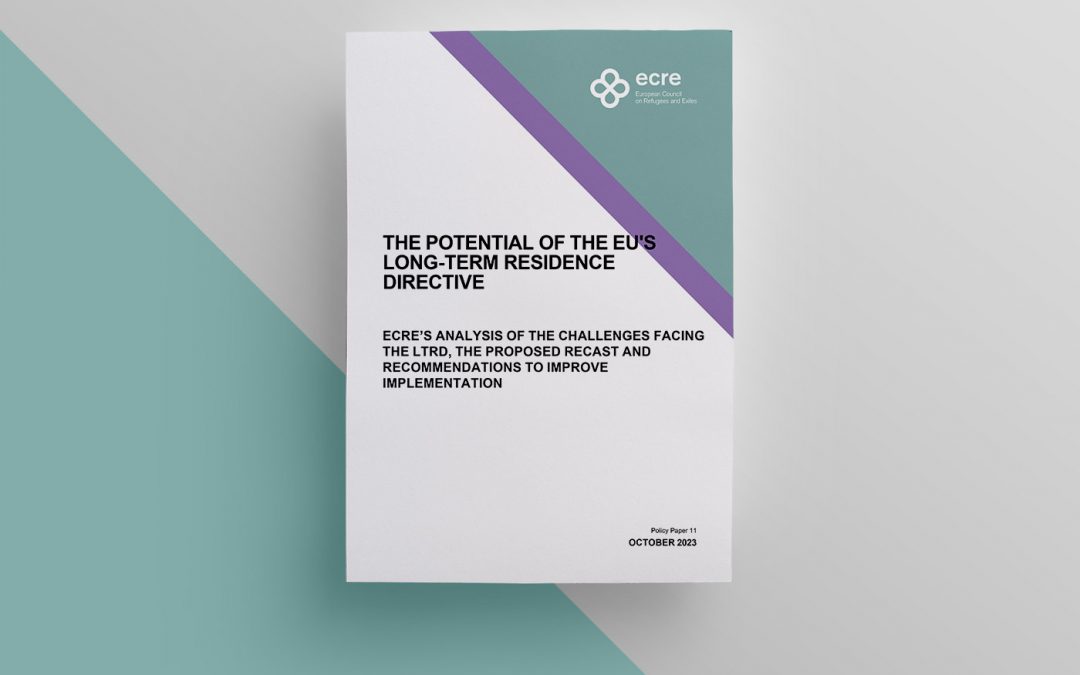ECRE has published a policy paper analysing the proposal for the recast Long Term Residence Directive (LTRD). This paper highlights the enduring challenges stemming from the LTRD’s existing legal framework and its implementation during the past two decades. It also offers an overview of the current positions taken by the European Commission, the European Parliament (based on the Rapporteur’s report on the recast), and the Council of the EU regarding the LTRD’s recast. Furthermore, the paper identifies potential recast amendments that could enhance the directive’s implementation and brings into focus the unresolved and emerging issues.
ECRE firmly believes that the LTRD recast is pivotal in providing lasting solutions for various groups of TCNs, including international and temporary protection beneficiaries and those under national protection systems. However, despite some positive changes offered by the recast, such as broadening eligibility criteria, counting international protection application time, and improving information accessibility, significant challenges persist. The directive’s scope remains unchanged, stringent eligibility criteria endure, and various requirements, including demonstrating suitable accommodation and passing labor market tests, remain unaltered.
The paper emphasizes the need for a comprehensive reform of the directive to enhance clarity and accessibility, making the LTRD more beneficial for third-country nationals (TCNs) in the EU. In light of this, ECRE’s policy paper offers a set of recommendations to co-legislators. These recommendations encompass expanding eligibility requirements, clarifying income assessment periods, revising legal residence requirements, enhancing intra-EU mobility, strengthening procedural rights, reviewing labor market access, extending the recognition of qualifications, and improving the rights of family members, particularly dependent children.
The cornerstone of this reform should be a rights-based approach, aimed at strengthening the rights of EU Long-Term Residents (EU LTRs) and their family members, aligning their rights with those of national permit holders and EU citizens. The process should lead to an easily attainable and straightforward EU LTR status, bringing clarity to both TCNs and national authorities. To ensure the success of the recast, it is essential that all amendments adhere to the principle of effectiveness and align with the EU Charter of Fundamental Rights.

